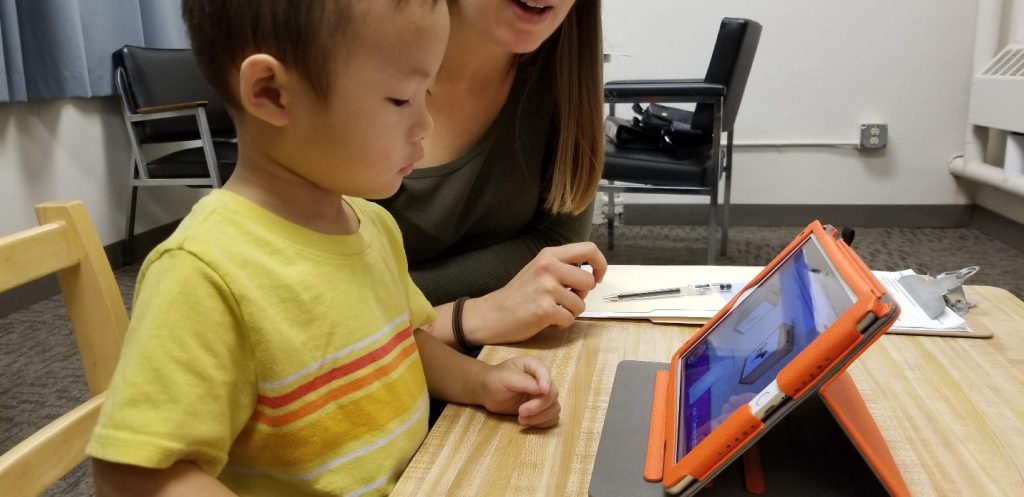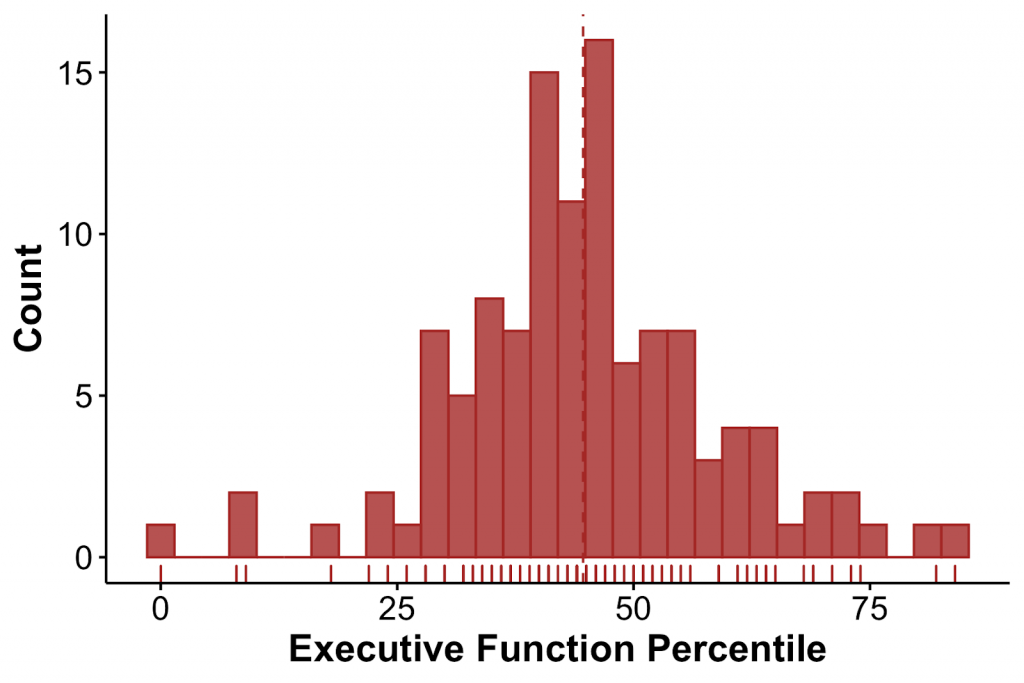
By Milena Cornejo, Emmy Reilly, and Shanna Mliner

Executive function (EF) is a set of mental skills including working memory (keeping things in mind), cognitive flexibility (changing strategies to solve problems if the old strategy stops working) and inhibitory control (what you need to be able to play Simon says, for example). Neural systems allow EF to develop early but it takes until adulthood for EF to be fully developed. These skills are critically important to school and life success. Therefore, it would be good to catch children who are delayed in these skills early, because these skills can be trained and strengthened.
To catch children early we need to catch them where they are at. One thing that most children experience are the pediatric well-child visits. Would it be possible to test children’s EF skills quickly during a pediatric well-child visit so we could identify children who would need help in building their executive function skills? Stephanie Carlson and Phil Zelazo, professors in the Institute of Child Development at the University of Minnesota, have created a tablet task that takes about 5 minutes to administer and assesses executive function. It is called the Minnesota Executive Function Scale (MEFS). We designed the Preschool Attention Study in partnership with Children’s Minnesota to see 1) whether we could administer the MEFS during a well-child visit, 2) whether it is acceptable to parents, and 3) whether child scores on the MEFS are the same during a pediatric well-child visit as they would be in the research lab.
We are meeting children and their families when they come in for the regular pediatric well-child visit. At a convenient point during the visit, we administer the MEFS. The children in the study are between 2 and 5 years old and we are tracking many of them across 3 years to see how their MEFS scores develop.
In Figure 1, you can see the range of MEFS scores from the children during our first round of clinic sessions. We found that the average scores in the clinic (44.7) are a bit lower than the measure’s average (50). This probably means that interpretation of the scores will need to be adjusted because a well-child pediatric visit is not the typical calm setting in which the MEFS task is usually administered. So far, we have completed the first year of this study and are excited to see how children’s EF skills improve in the second year of this study.




